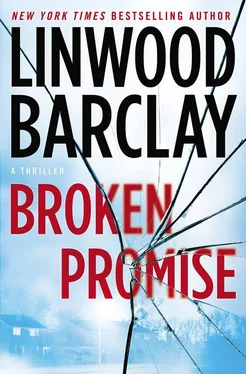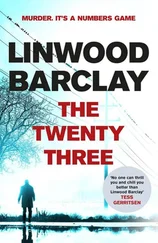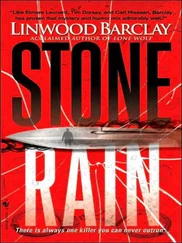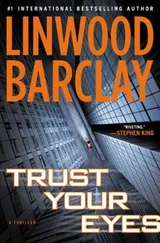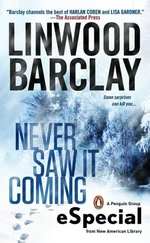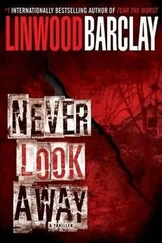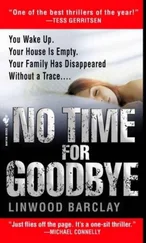No last name.
So Duckworth tapped on the number, automatically dialing it, and listened.
After three rings: “Hello?”
The voice sounded female, so he asked, “Is this Sarita?”
“Sarita?”
“That’s right. Are you Sarita?”
“Sarita who?”
Duckworth sighed. “I’m trying to get in touch with Sarita. Am I talking to Sarita?” Bill Gaynor had suggested Sarita was an illegal immigrant, but the detective did not detect any kind of foreign accent.
“I don’t have a last name. I’m looking for Sarita. She works as a nanny.”
“Who is calling?”
He hesitated. “Duckworth. Detective Duckworth, with the Promise Falls police.”
“I don’t know any Sarita. There is no Sarita here. You have the wrong number.”
“I don’t think so,” he said. “It’s very important that I speak to Sarita.”
“Like I said, I don’t know how you got this number.”
“If you’re not Sarita, then do you know her? Because I—”
The call ended. Duckworth had been hung up on. “Shit,” he said. He never should have identified himself as being with the police.
He returned to his desk, and just as he’d suspected, word had gotten around about his first call of the day. Placed in front of his computer monitor was a jar of salted peanuts, with a yellow sticky note attached that read, For paying your informants.
The twenty-three dead squirrels. Was that actually today? It seemed like a week ago.
He cracked the lid, poured out a handful of nuts, tossed them into his mouth. Then he entered the phone number he’d just dialed into the Google search field on his computer. If it was a landline, there was a good chance the name of the person who owned that phone would come up.
No such luck.
But not all was lost, even if the phone was a cell. Unless it was a throwaway, they’d be able to attach a name to it in no time. Duckworth could get someone on that. The Internet abounded with firms offering to track down cell-phone identities for a price, but they often promised more than they could actually deliver.
Duckworth forwarded the officer’s e-mail containing Sarita’s number to Connor Stigler, in communications, with the words: Whose number is this?
Then he phoned his wife, Maureen.
“Did you have one?” she asked him.
“Have one what?”
“On the way to work. A doughnut.”
“I did not.” It was nice not to have to lie for once. “It was a close one, though.”
“You sound like you’re eating something right now.”
“Peanuts,” he said. “What’s for dinner?”
“Gee, I don’t know,” she said. “What are you making?”
“Seriously?”
“Why is it always my responsibility? Maybe you didn’t get the memo. I work, too.”
“Okay. I’m bringing home a bucket of fried chicken, mashed potatoes, and gravy.”
“Well played,” Maureen said. “I’m serving fish. Pickerel.” She paused. “And some greens.”
“Greens,” Duckworth said. “Maybe I will pick up fried chicken.”
Maureen ignored the threat. “Will you be late?”
“Maybe. I’ll keep you posted. Heard from Trevor?”
Their son. Twenty-four years old, looking for work. He didn’t live with them, or anyone else, for that matter. Not anymore. The love of his life, a girl named Trish, who’d traveled across Europe with him, had recently broken things off. Trevor, devastated, now had a two-bedroom apartment all to himself. Barry and Maureen didn’t hear from him as often as they’d like, and they worried about him.
“Not today,” Maureen said. “Maybe I’ll give him a call. See if he wants to come for dinner.”
“For fish? Good luck with that.”
“It doesn’t have to be today.”
“Okay, do that. Listen, gotta go.”
He’d noticed that he already had an e-mail back from Connor.
It read: L SELFRIDGE 209 ARMOUR ROAD.
As he was pushing his chair back from the desk, uniformed officer Angus Carlson walked past, glanced at Duckworth and the jar of peanuts, and smiled.
Before Duckworth could level an accusation, Carlson said, “Wasn’t me.” Paused, then added, “I’d have to be nuts to mock a superior officer.”
The Armour Road address was a rooming house, a three-story Victorian home that had been broken down into apartments. There was a buzzer by the front door labeled MANAGER. Duckworth buzzed. Moments later, a short, heavyset woman with little more than a few wisps of hair came to the door and opened it a few inches.
“Yeah?”
“Ms. Selfridge?” he asked.
“Mrs. But the mister died a few years back. We don’t have any vacancies, but you can leave your name if you’d like.”
“I’m not looking for a room,” he said. “That was pretty rude of you, cutting me off like that.”
Her eyes danced. “Huh?”
“On the phone, a few minutes ago. When I was asking for Sarita.”
“How’d you find where I live?”
“You pay the bill on that cell phone, Mrs. Selfridge. There are some things you don’t need Homeland Security for.”
“I told you before, I don’t know any Sarita.”
“I’m thinking you do.”
She started to close the door but Duckworth got his shoe in.
“You got no right,” she said.
“I’m guessing Sarita likes to keep under the radar, so you let her use your phone. That way she doesn’t need to get one in her own name. You tack on a little to the rent every month for the service?”
“I don’t know what you’re jawin’ about.”
Duckworth looked around, like a would-be buyer appraising the house. “When’s the last time you had a fire inspection, Mrs. Selfridge? Someone to go through, room by room, make sure everything’s up to code?”
“You’re talking crazy talk.”
“I could give them a call right now if you’d like. Invite them over to—” He stopped midsentence, his nose in the air. “What’s that I smell?” he asked.
“That’s chocolate-chip banana bread,” she said. “I just took it out of the oven.”
Duckworth gave her his warmest smile. “My God, that smells wonderful. I have this theory that when you arrive in heaven, the first thing you smell will be something like that.”
“I make it whenever I’ve got a lot of old bananas that are too ripe to eat. But you mush them all up and bake ’em and they’re good to eat.”
“My mother used to do that. She’d even put black bananas in the freezer until she got around to making banana bread.”
“I do that, too.” Anxiously, she said, “This business with the fire inspection. I’m pretty up to code here, smoke detectors and all that. There’s no need for them to come in here and get their shorts all in a knot about little picky things.”
“They can be picky,” Duckworth said. “I suppose we could talk about it over some of that banana bread.”
The woman gave him a withering look, sighed, and opened the door wide.
“You don’t even have to tell me where your kitchen is,” he said. “I can follow the scent, like a dog chasing down a rabbit.”
Seconds later he was parked at the woman’s small kitchen table.
“This is asking a lot,” Duckworth said, “but would you mind cutting me off an end piece? Where it’s crustier? It’s never better than when it’s still warm.”
Mrs. Selfridge obliged. She cut him a slice off the end, and one more, set it on a chipped pale green plate, and placed it in front of him.
“You want it buttered?” she asked.
“No, no, that’s fine,” Duckworth said. “I’m trying to cut back.”
“You want milk with it?” she asked. “That’s the way my Leonard would have it. And I got a splash of coffee left in the pot if you’d like that.”
Читать дальше
